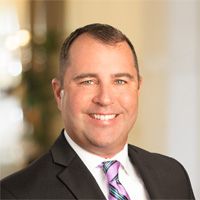Smart Tips for Estate Planning: Write Your Will Like George Washington Did
The father of our country crafted a finely detailed and surprisingly personal will to protect his family and his legacy. Follow in his footsteps by keeping these three principles in mind: communication, clarity and customization.


Profit and prosper with the best of Kiplinger's advice on investing, taxes, retirement, personal finance and much more. Delivered daily. Enter your email in the box and click Sign Me Up.
You are now subscribed
Your newsletter sign-up was successful
Want to add more newsletters?

Delivered daily
Kiplinger Today
Profit and prosper with the best of Kiplinger's advice on investing, taxes, retirement, personal finance and much more delivered daily. Smart money moves start here.

Sent five days a week
Kiplinger A Step Ahead
Get practical help to make better financial decisions in your everyday life, from spending to savings on top deals.

Delivered daily
Kiplinger Closing Bell
Get today's biggest financial and investing headlines delivered to your inbox every day the U.S. stock market is open.

Sent twice a week
Kiplinger Adviser Intel
Financial pros across the country share best practices and fresh tactics to preserve and grow your wealth.

Delivered weekly
Kiplinger Tax Tips
Trim your federal and state tax bills with practical tax-planning and tax-cutting strategies.

Sent twice a week
Kiplinger Retirement Tips
Your twice-a-week guide to planning and enjoying a financially secure and richly rewarding retirement

Sent bimonthly.
Kiplinger Adviser Angle
Insights for advisers, wealth managers and other financial professionals.

Sent twice a week
Kiplinger Investing Weekly
Your twice-a-week roundup of promising stocks, funds, companies and industries you should consider, ones you should avoid, and why.

Sent weekly for six weeks
Kiplinger Invest for Retirement
Your step-by-step six-part series on how to invest for retirement, from devising a successful strategy to exactly which investments to choose.
Estate Planning for those you love can dramatically alter the course of your family for generations. In his last will and testament of 1799, George Washington, laid out a clear vision for his legacy. He bequeathed the “use, profit, and benefit” of his whole estate to his “dearly beloved wife Martha Washington.” He also forgave the debts of many of his family members, financed the establishment of a school for orphans, earmarked stock for what is now Washington and Lee University and made arrangements to care for others dear to him.
Clarity: Providing a Deeper Understanding of Your Intent
When you think of estate planning, you probably think of your last will and testament. However, a will may not fully convey the spirit and subtlety of your intentions.
You may want to consider the role of a “personal statement of intent” or a “letter of wishes” within your own legacy design. This document works in tandem with your will to convey a deeper level of personalization — and possibly explanation — for your heirs. This private document is non-binding. Whereas a will may become a publicly registered document under the probate laws, a personal statement of intent will be accessible only to the people you stipulate — typically your executor, trustee and heirs.
From just $107.88 $24.99 for Kiplinger Personal Finance
Become a smarter, better informed investor. Subscribe from just $107.88 $24.99, plus get up to 4 Special Issues

Sign up for Kiplinger’s Free Newsletters
Profit and prosper with the best of expert advice on investing, taxes, retirement, personal finance and more - straight to your e-mail.
Profit and prosper with the best of expert advice - straight to your e-mail.
A personal statement of intent can be useful in clarifying the rationale behind the formal provisions of your will. It can serve a wide range of purposes:
- If you divided your estate inequitably, for example, your personal statement can be used to rectify the perception that you are favoring one heir over another. You can also use a personal statement of intent to defuse possible guilt over the disposition of your assets.
- If you are bequeathing long-held company stock, for example, you may want to address your heirs’ hesitancy to sell those shares.
- Finally, a personal statement can be valuable in conveying your hopes and aspirations for your loved ones in ways that don’t fit the traditional parameters of a will. For example, you may suggest that your family retain your vacation home or ranch for a period of years, using it as a place to convene multiple generations for family reunions. Or you may use a personal statement to outline the preferred care of a beloved family pet.
Katherine C. Akinc, of counsel at Brink Bennett Flaherty Golden in Austin, explains that a personal statement of intent can be an effective means of conveying a benefactor’s rationale: “Most people have thoughtful, well-reasoned explanations behind the division and distribution of their estates. However, if such explanations are not communicated, beneficiaries often leap to the worst conclusions for why Mom gifted a larger estate share to one child over another, or why property was left in trust rather than outright.”
While not everyone needs a personal statement of intent, families with nontraditional structures or inequitable distributions may benefit from the clarity and comfort they can provide. Their innate flexibility and adaptability provide benefactors with a timely and deeply personalized vehicle to relay the spirit and mindset behind a benefactor’s final intentions. Your estate planning attorney can assist you with the preparation of this statement and ensure that it functions smoothly within your overall estate-planning framework.
Customization: Honoring the Singularity of Your Intentions
A final consideration in your estate planning should be the unique nature of your legacy. Both in terms of your assets and intentions, the distinctive nature of your circumstances should be honored, in death as in life. Your wealth, family dynamics and philanthropic interests are uniquely yours. It is important to work with an adviser who appreciates the intricacies of your financial picture, as well as the subtleties of your vision and values.
When you partner with an adviser who is a fiduciary, you are working with someone who is legally bound to pursue the long-term best interests of your family. During critical crossroads, sometimes the wisest action is to forestall large-scale changes. For example, a surviving spouse will likely have different cash-flow needs following the death of his or her spouse. A thoughtful financial adviser will be sensitive to that evolving change, possibly refining a client’s portfolio allocations over time, but showing due restraint in implementing any changes. In estate planning, as in other aspects of your wealth, your financial adviser should act as a critical extension of you, your wishes and your intentions, tending to your vision with care and sensitivity.
As you think about your own estate planning needs, consider the foundational values of communication, clarity and customization within your own legacy design. Building on this foundation, you can have the satisfaction of “setting your hand and seal” to reassure your heirs, convey your final wishes, and provide comfort and consolation to the people you love.
Profit and prosper with the best of Kiplinger's advice on investing, taxes, retirement, personal finance and much more. Delivered daily. Enter your email in the box and click Sign Me Up.

Chris Creed is a Senior Lead Adviser for Venturi Wealth Management. Chris partners with new clients to organize, plan and manage all aspects of their family's financial life. As a Certified Financial Planner® professional and a Certified Private Wealth Advisor®, Chris creates customized wealth planning strategies unique to highly affluent clients.
-
 Dow Leads in Mixed Session on Amgen Earnings: Stock Market Today
Dow Leads in Mixed Session on Amgen Earnings: Stock Market TodayThe rest of Wall Street struggled as Advanced Micro Devices earnings caused a chip-stock sell-off.
-
 How to Watch the 2026 Winter Olympics Without Overpaying
How to Watch the 2026 Winter Olympics Without OverpayingHere’s how to stream the 2026 Winter Olympics live, including low-cost viewing options, Peacock access and ways to catch your favorite athletes and events from anywhere.
-
 Here’s How to Stream the Super Bowl for Less
Here’s How to Stream the Super Bowl for LessWe'll show you the least expensive ways to stream football's biggest event.
-
 How to Add a Pet Trust to Your Estate Plan: Don't Leave Your Best Friend to Chance
How to Add a Pet Trust to Your Estate Plan: Don't Leave Your Best Friend to ChanceAdding a pet trust to your estate plan can ensure your pets are properly looked after when you're no longer able to care for them. This is how to go about it.
-
 Want to Avoid Leaving Chaos in Your Wake? Don't Leave Behind an Outdated Estate Plan
Want to Avoid Leaving Chaos in Your Wake? Don't Leave Behind an Outdated Estate PlanAn outdated or incomplete estate plan could cause confusion for those handling your affairs at a difficult time. This guide highlights what to update and when.
-
 I'm a Financial Adviser: This Is Why I Became an Advocate for Fee-Only Financial Advice
I'm a Financial Adviser: This Is Why I Became an Advocate for Fee-Only Financial AdviceCan financial advisers who earn commissions on product sales give clients the best advice? For one professional, changing track was the clear choice.
-
 I Met With 100-Plus Advisers to Develop This Road Map for Adopting AI
I Met With 100-Plus Advisers to Develop This Road Map for Adopting AIFor financial advisers eager to embrace AI but unsure where to start, this road map will help you integrate the right tools and safeguards into your work.
-
 The Referral Revolution: How to Grow Your Business With Trust
The Referral Revolution: How to Grow Your Business With TrustYou can attract ideal clients by focusing on value and leveraging your current relationships to create a referral-based practice.
-
 This Is How You Can Land a Job You'll Love
This Is How You Can Land a Job You'll Love"Work How You Are Wired" leads job seekers on a journey of self-discovery that could help them snag the job of their dreams.
-
 65 or Older? Cut Your Tax Bill Before the Clock Runs Out
65 or Older? Cut Your Tax Bill Before the Clock Runs OutThanks to the OBBBA, you may be able to trim your tax bill by as much as $14,000. But you'll need to act soon, as not all of the provisions are permanent.
-
 The Key to a Successful Transition When Selling Your Business: Start the Process Sooner Than You Think You Need To
The Key to a Successful Transition When Selling Your Business: Start the Process Sooner Than You Think You Need ToWay before selling your business, you can align tax strategy, estate planning, family priorities and investment decisions to create flexibility.